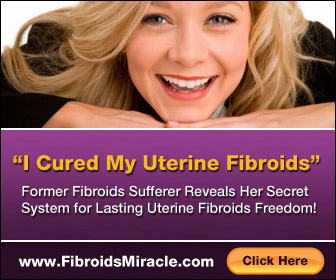Uterine fibroids are tumors thought to respond to estrogen and progesterone levels. They often appear during childbearing years. Also known as leiomyomas or myomas, uterine fibroids are not associated with an increased risk of uterine cancer and almost never develop into cancer.
Soy is a legume rich in phytoestrogen or isoflavone, which is similar in structure to human estrogen but not as potent. It appears to have protective effects when consumed in small to moderate amounts, but may result in negative effects when consumed in excess. There’s also hope that these isoflavones can protect against hormonal diseases such as breast cancer.
Into the Soy-Fibroid Link
A Chinese case-control study was conducted to see if there were any links between soy intake and uterine fibroid risk. More than 70 women with fibroids and 210 without fibroids were examined through validated questionnaires.
It was shown that there were no links that could be associated with uterine fibroids. Two more health studies of the same topic conducted in the US and Japan proved that soy intake does not seem to be correlated to fibroid risk in adults.
Study of Environment, Lifestyle & Fibroids (SELF) is an ongoing inquiry involving African-American women aged 23 to 34 years. Approximately 1,500 women were surveyed concerning soy intake during infancy—22% had fibroids and 13% had reported being fed soy formula.
Results showed that the women who were fed a soy formula had a slightly lower prevalence of fibroids in comparison to those who were not, yet the values were too similar to be significant. However, those who were fed soy formula as infants had significantly larger fibroids than those who were not. On average, soy formula feeding was linked with a 32% fibroid diameter increase and a total fibroid volume increase of 127%.
SELF also looked into baby animals and their exposure to genistein (a soy isoflavone). The researchers later concluded that even though there were no links found between soy formula and fibroid prevalence, the exposure to a soy isoflavone early in life can affect the developing uterus and increase the chances of fibroid growth.
The Black Women’s Health Study that was held for 12 years revealed that 7268 women had fibroids from 23505 premenopausal women, but there was little-to-no evidence of an association between fibroids and the exposure to soy formula in infancy. Furthermore, the findings do not support the hypothesis that early life factors are strongly related to fibroid growth risk.
Insufficient Association
Soymilk or soybeans does neither harm nor good in uterine fibroids as there is no links found between them and uterine fibroids, but they may influence the uterus in ways that could later lead to fibroid growth when taken early in infancy. But, soy products may still boost estrogen, so it’s better to consume them in moderation.
All in all, if you believe that you’re at risk of developing these uterine growths and you’ve been having too much soy in recent years, in addition to noticing fibroid-related symptoms as of late, it would be wise to get in touch with your doctor as soon as possible.


